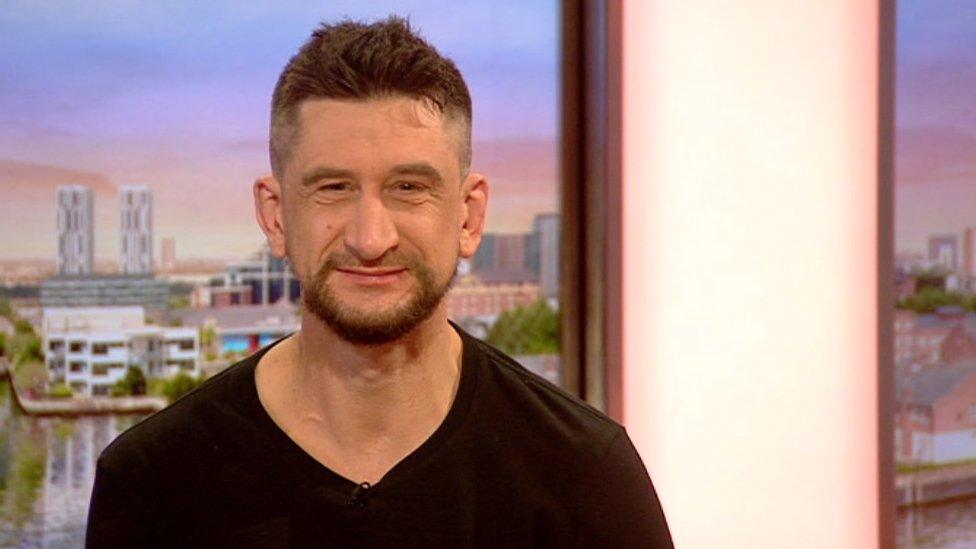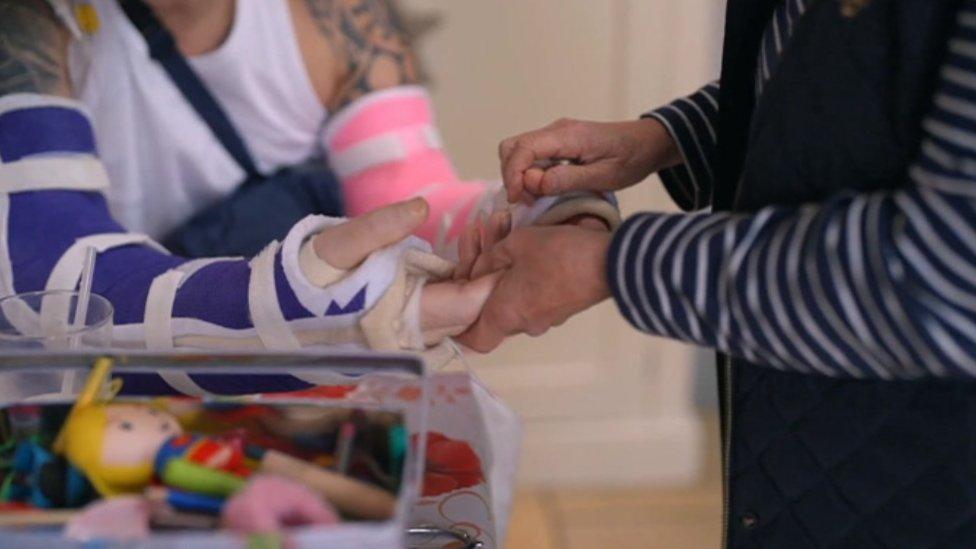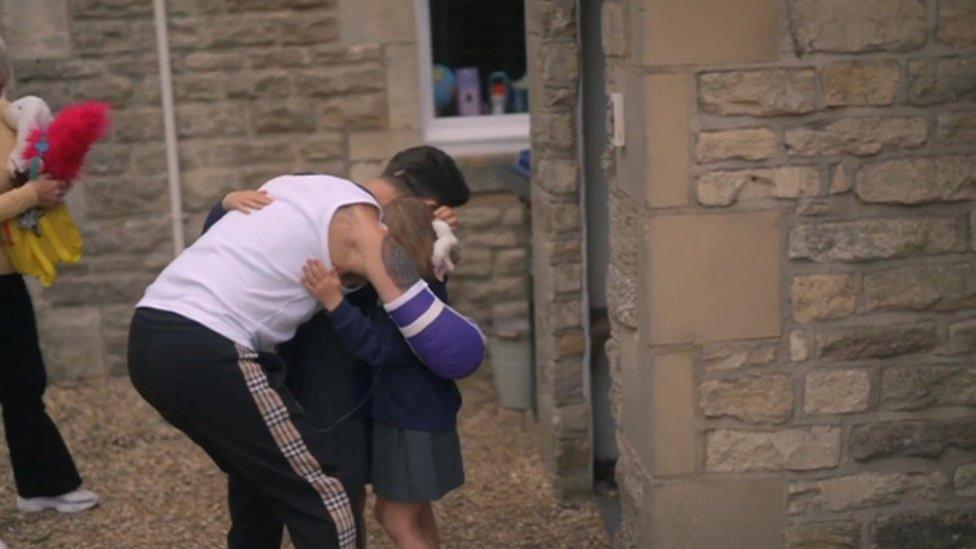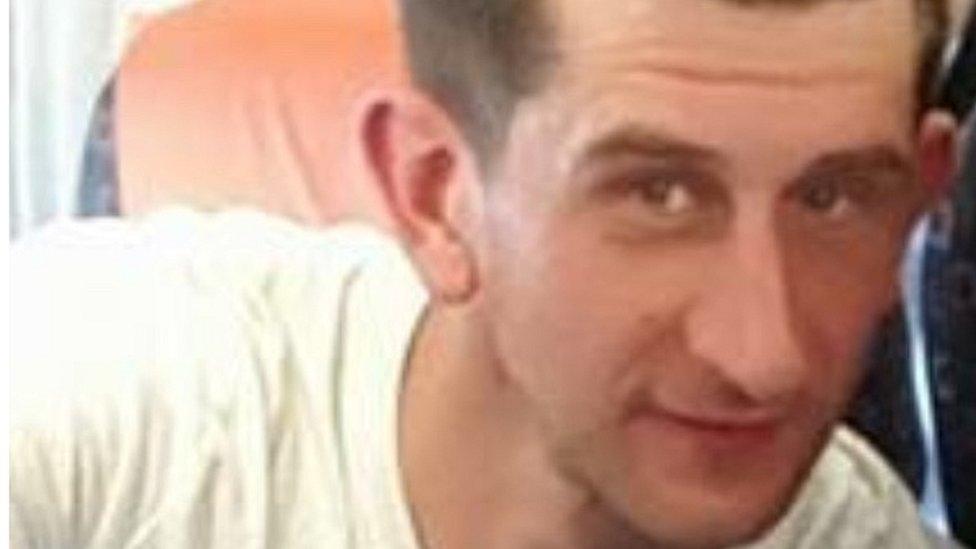Swindon scaffolder's hand transplants 'changed his life'
- Published

Mr Mines' story will now appear as part of a new documentary series
A scaffolder said hand transplants have "changed his life" and allowed him to finally hold his kids' hands again.
Jamie Mines, from Swindon, lost both his hands and legs when he was electrocuted while working on a building site in 2016.
A year after his hand transplant, Mr Mines said he is recovering well.
He hopes his story, which will be part of BBC documentary series Saving Lives in Leeds, will raise awareness of limb donations.
"I was building at a job underneath powerlines in Swindon," Mr Mines told,BBC Breakfast.
"The job was pretty much complete, I just put the tin sheets up to finish the roof - electricity got through the tin roofs and fried me.
"That's what it felt like at the time and I am surprised to be here."
Placed in a coma
Mr Mines had to be placed in a coma and both his hands and legs were amputated.
After recovering, he found out that hand transplants were an option, and he contacted Dr Kay who performed the surgery.
"He is mentally and physically recovering well," Dr Kay said. "He is only a year away from surgery and he has already recovered grip."

A year after his hand transplant, Mr Mines said he is recovering well
Mr Mines got his hands tattooed - to "personalise them".
"They are slightly older hands than I had and I wanted to make them feel more mine," Mr Mines said.
'They are his hands'
"It is very nice for us to see that he identifies immediately with his hands," Dr Kay added. "He owns his hands, they are his hands."
Mr Mines hopes that appearing in the documentary Saving Lives in Leeds will raise awareness of limb donations.
"If people know more about external limb donations, they might think: 'Oh, what a gift to give somebody'," he explained.

Mr Mines said the first thing he did after recovering from the hand transplant was hold his children's hands
"It is an enormous, courageous, generous thing to do, to give limbs." Dr Kay added.
"And there's the nurses that have to go to the family at their maximum part of bereavement and say: 'Would you consider limb transplants?' Because it is a very important donation."
Mr Mines said the first thing he did after recovering from the hand transplant was holding his kids' hands.
"I walked them to school," he said. "They think it is great."

Follow BBC West on Facebook, external, Twitter, external and Instagram, external. Send your story ideas to: bristol@bbc.co.uk , external
Related topics
- Published6 January 2017

- Published1 February 2017
